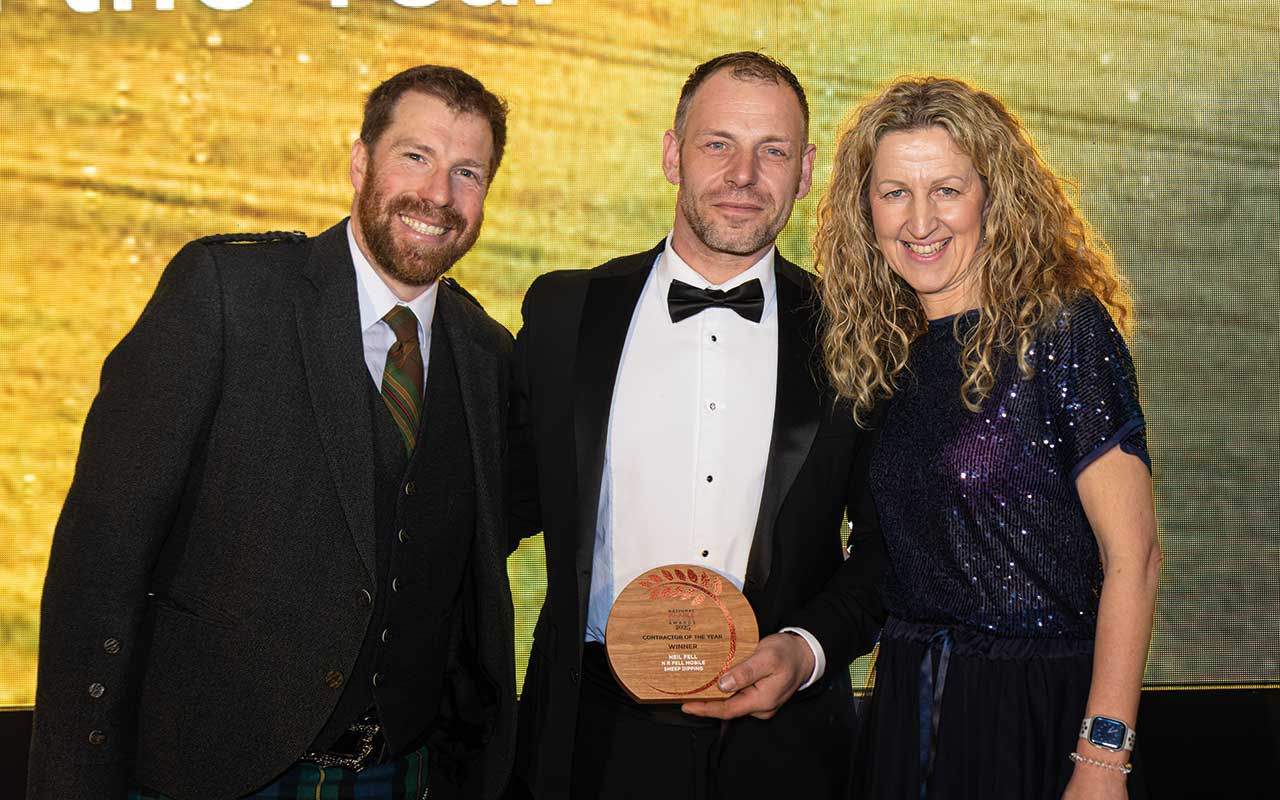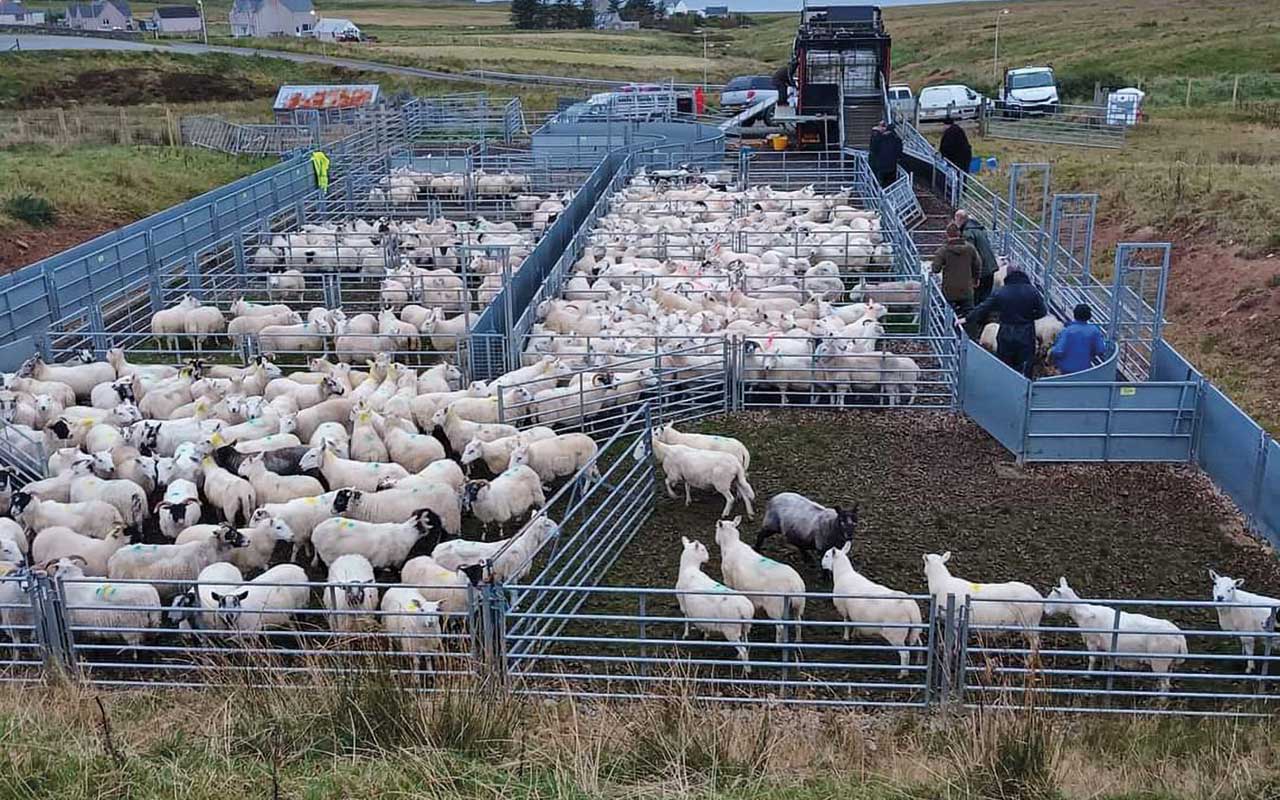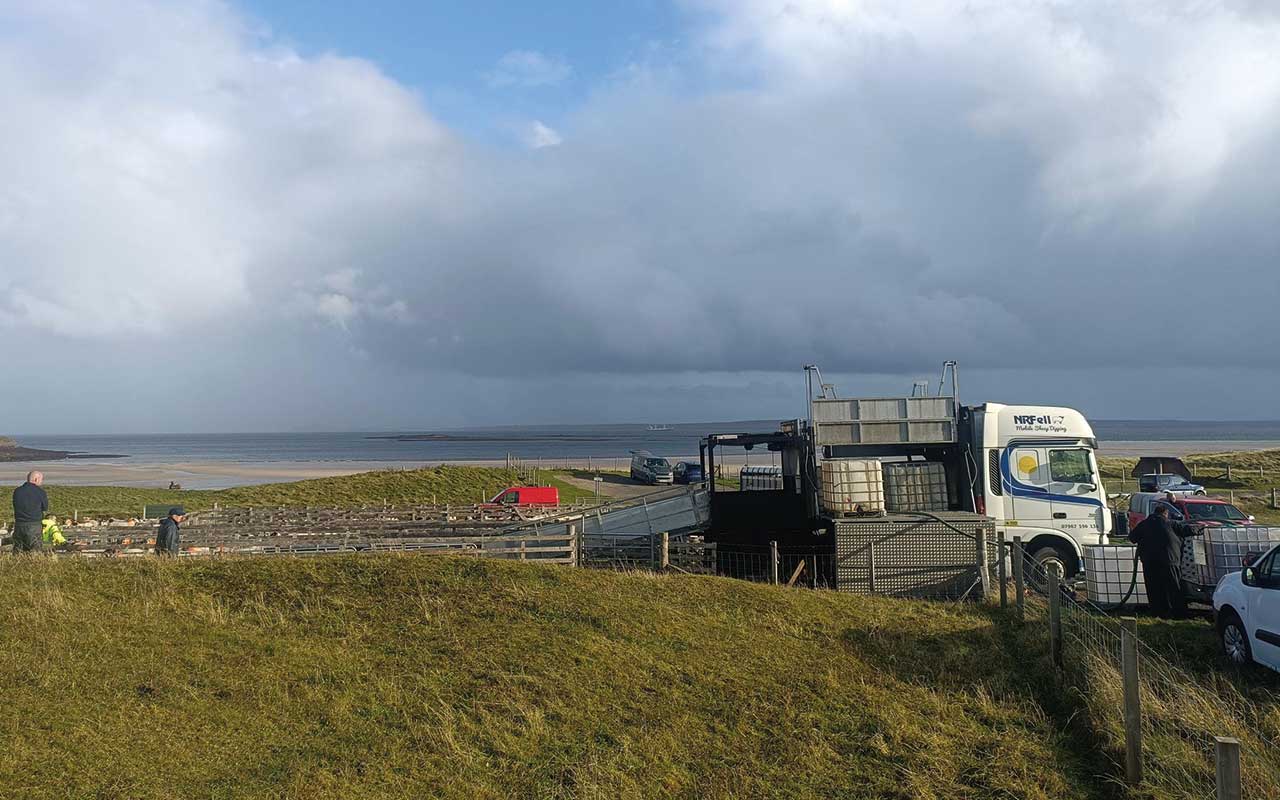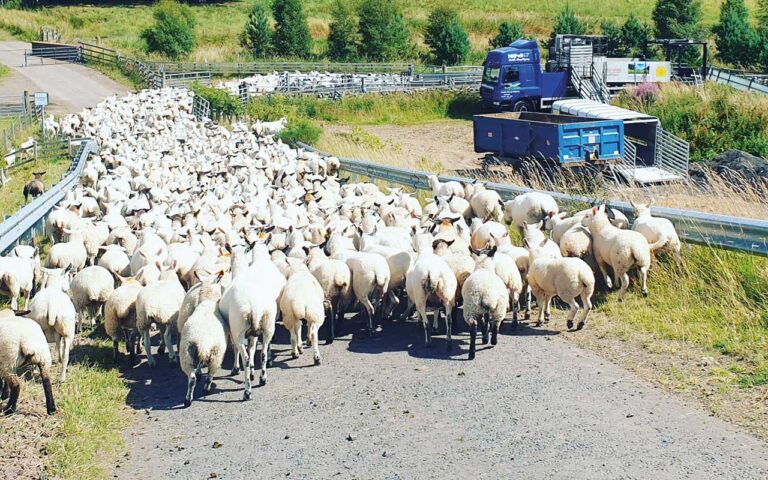When our 2025 Contractor of the Year, Neil Fell, started his sheep-dipping business, the family farm, based near Durham, was going through several changes.
Initially a dairy farm milking 170 Holsteins, the family decided to switch to rearing bull calves after the foot-and-mouth crisis and have since converted the farm to a bed-and-breakfast pig unit holding 1,100 animals, with plans to increase this to 2,000.
“We’ve struggled with maintaining investment and developing the business due to our scale,” Neil explains.
“If you’re not moving forward, you’re standing still, so we’ve had to rethink how we do things. We contracted out the 50ha of arable ground because the cost of machinery made it difficult to justify further expenditure, which also gave us the capacity to expand the sheep flock.”
Having grown up on the farm, Neil split his late teens and early twenties between working with his father, Brian, and working for Askham Bryan College.
“I’d gone to college with the idea of becoming a land agent, but that wasn’t really for me. Instead, I ended up lecturing in agriculture at Askham Bryan and helping to run its satellite campus at Hexham.”
He laughingly says he fell into that role; a pattern that continued when he set up the mobile dipping business. What becomes clear, however, is that Neil has a knack for seeing opportunities. There’s very little luck at play here, instead he puts a lot of hard work into each area of the business.

Home dipping
The sheep-dipping business grew out of the home farm. Neil and his father had always dipped their own flock using a traditional ground unit.
“It wasn’t a pleasant job,” he says. “The sheep splash around, so the chemical goes everywhere, and when it came time to upgrade the dipping system, we found out it was too close to a watercourse, so it was going to require a lot of investment.”
At the time, the flock had increased to more than 1,300 head, so they brought in a local contractor with a mobile dipping unit.
Neil says he had no ambitions to start up a contracting business, instead he simply asked if the contractor would consider selling the machine so they could handle their own dipping.
“At most, I maybe thought I could do a couple of thousand sheep for neighbouring farms,” he says. “Maybe pay for a holiday.”
This was in 2014, and word of mouth spread quickly. Neil says the number of sheep he was dipping increased by the thousands every year and he was quickly handling 75,000 with a Portequip conventional dipping unit.
He notes that while the business was growing exponentially, it was also highlighting some issues with the methods of dipping.

“The conventional dipper design can lead to stress in the flock, because their feet aren’t always touching the floor, which leads to thrashing. This causes chemical spillage,” he explains.
“Not only that, but it’s hard on the workers trying to guide the sheep into the machine.”
After one particularly gruelling day, when Neil says nothing had gone right, he had the inspiration to design a new type of dipping machine.
“Everyone has these sorts of days. I hadn’t taken lunch with me because it was only a quick job, and then after everything I was driving home late.
“I stopped at a chip shop because it was the only place open and I watched as they put a portion into the fryer. Everything was contained; the chips had a solid base they were placed on and they were evenly coated in oil. It struck me that the design could work on a mobile dipping unit.”
Cooking up an idea
After doodling a design of the new dipping unit, Neil got in touch with a friend who could fabricate a prototype. “We had no idea if it would work in practice, but the theory seemed sound.”
The design incorporated a cage that the sheep could be led into, which was then hydraulically lowered into the chemical. As the sheep were always standing, the animals would panic less, and each animal would get an even dose of the chemical. “When we trialled the first unit, I could see it was going to be a game-changer for us.”
He wasn’t wrong. The machine not only made the job less arduous for the staff, it also significantly increased throughput. Whereas the conventional machine could handle about 100 sheep an hour on a good day, the bespoke machine could dip 300-400 animals an hour. This provided ample opportunities for Neil to expand the business.
And expand he has. NR Fell Mobile Sheep Dipping now treats more than half a million sheep each year, with machines running nationwide.
The number continues to increase and Neil has worked with government, both on a national and local level, to create guidelines for the use of organophosphates (OP) and offer extended treatments to eradicate scab.
“This is a welfare issue,” he says. “Scab is no longer a seasonal issue for farmers; it can occur at any time of the year and OP is still our best defence against it.”
With this in mind, Neil has promoted self-governance for the industry, using best practice with both dipping and the disposal of chemical.
“We work with a chemical treatment plant to dispose of all our chemicals. Operators need to understand that they are liable for what happens to the chemical, even if it’s the farmer who then dumps it on the land.
“The consequences of leaching into watercourses or damaging the biodiversity of the soil could lead to further restrictions on our only viable scab treatment.”

Working nationwide
The growth of the business has seen Neil and his staff travel as far north as Lewis and Harris in the Outer Hebrides, where they worked for several weeks to dip every sheep on the islands.
Similar discussions are currently in place with Orkney in a bid to eradicate scab there as well. Working with businesses in Dorset and the West Midlands, Neil has also been able to franchise the business to cover sheep farmers nationwide.
“We now have four of the cage dipping units, which are mounted on the back of wagons,” he says. “These are fully kitted out with sleeping cabs and mod-cons so the operators are comfortable if they have to stay overnight.”
For longer jaunts, Neil will book accommodation for the workers, but he says regular jobs are normally done in a day, with only the largest requiring more than one or two nights away.
The success of the dipper design has led to interest internationally, both on mainland Europe and further afield. While he says nothing is set in stone, Neil believes there are significant opportunities for expansion.
“Scab and the use of OP is something every country is going to have to address in the coming years, and if our design can help to tackle this, I’m happy to have these conversations,” he says.
Still, his main customer base – you’d be hard pressed to use the term local to describe a business that covers Land’s End to John O’Groats and beyond – remains the focus.
“We can’t afford to let anyone down because this is a welfare issue. If a farmer finds scab in the flock, we’ll be there as soon as possible. It’s not unheard of for me to drive through the night to be set up the next morning and dipping a few hundred sheep.”


